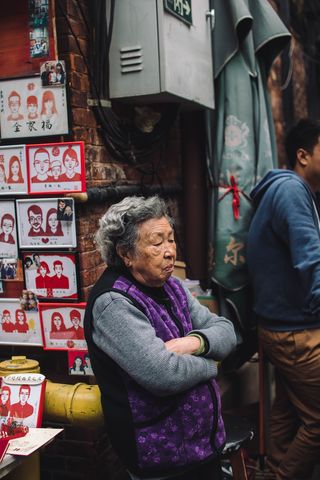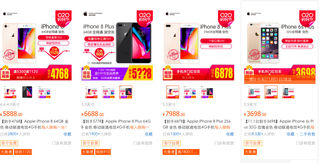Spirituality
Why Are Prices Ending In the Number 8 So Popular in Asia?
American sellers focus on consumer psychology, Asian sellers emphasize luck.
Posted January 7, 2019
“On 08/08/2018, Las Vegas hotels advertised $888 and $1,888 wedding packages, or deals for the first 88 couples.” – Jennifer 8. Lee, New York Times

When researchers conduct price surveys in the United States, 9 is the most popular price ending. Studies have found that anywhere between 35 percent and 65 percent of all prices set by U.S. sellers end in 9. Some companies like the 99 Cents Only Stores rely on them even more. About 90 percent of 99 Cents Only’s items are priced precisely at 99 cents. There are good reasons for this dependence on 9-ending prices, also known as “charm prices,” that I’ve written about before.
However, one really interesting fact is that the popularity of 9-ending prices does not extend to Asia. In many Asian countries, prices ending in 9 are not as common. Instead, the most popular price ending is the number 8. In this blog post, we’ll consider both the reason for this discrepancy and what it tells us about cultural differences when setting prices.
The Symbolic Value of the Number 8
The main reason for the prolific use of 8 for price endings lies in the superstitious beliefs about the role of numbers in people’s lives. In Chinese culture, the number 8 has a special significance. It is spoken as bā which sounds similar to fā, which has connotations of wealth, fortune and prosperity in Cantonese and Mandarin. Because of this resemblance, there’s a centuries-old belief that 8 is an auspicious number. This cultural belief manifests in many significant ways, as when Chinese couples flocked to get married on 08/08/2008 (but no word yet on whether these marriages were more successful or happier than those who married a few days earlier or later). On the flip side, the number 4, vocalized as si, is considered unlucky because of its association with death.
In China and other countries like Malaysia and Hong Kong where Cantonese and Mandarin are spoken by a significant proportion of the population, sellers tend to favor prices ending in 8 and shun those ending in 4. In one study of Chinese and Taiwanese print advertisements, researchers found almost 40 percent of prices ended in 8 and just 1.4 percent of prices ended in 4. Another study conducted in Singapore found the same thing. 31.1 percent of prices advertised in two Singaporean newspapers ended in 8. The authors concluded that “the lucky price ending 8 can be interpreted as an element of traditional Eastern culture, which communicates a superstitious belief rooted in the Chinese language.” A third study found an over-representation of prices ending in 8 in the room rates of Macau casino hotels.

Eight is also imbued with positive symbolic value in Japan. The Japanese script for the number 8 has the shape of a mountain (“Sue Hiro-gari” in Japanese), signifying the concepts of fanning out, growth, and “to become more prosperous as time passes.” Because of this positive connotation, prices in Japan, too, tend to lean, towards 8-endings.
A study conducted across Asia found that 8-endings were the most common endings used by sellers in Malaysia and Hong Kong where Cantonese Chinese is common, as well as in Japan and China. Moreover, such culturally symbolic prices often tend to be favored for high-priced items in Japan and Chinese-speaking regions, presumably because shoppers pay more attention to the auspiciousness of numbers when making buying decisions. The gist is that in large parts of Asia, prices ending in 8 are more favored than prices ending in 9.
How Culture Affects Pricing Decisions
Both the symbolic meaning of numbers and the roles played by the seller in offering a price and by the buyer in accepting or declining it in market transactions have cultural significance. People’s cultural beliefs about numbers play a powerful role in how sellers offer prices to customers. As we’ve seen, such beliefs even influence seemingly small decisions such as what price ending to use.
In the United States and other countries, when sellers use the number 9 as the last digit in their prices, they are essentially thinking about how their customers will react psychologically to the price. As I’ve written before, 9-ending prices lead a significant number of customers to underestimate the price and also create the perception that the seller is offering a good value. American sellers specifically, and Western sellers in general, capitalize on these psychological phenomena.
Asian sellers have an altogether different worldview when setting prices. Even though the psychological processes associated with 9-ending prices apply to Asian consumers because they are based on general cognitive and perceptual processes, sellers choose not to focus on customer reactions to price endings or to benefit from them. Instead, they are more prone to rely on the superstitious and cultural significance of numbers in their pricing decisions. Using the logic that “I want to harness good fortune for my business and my customers with my pricing decisions,” they gravitate towards prices ending with the number 8.


